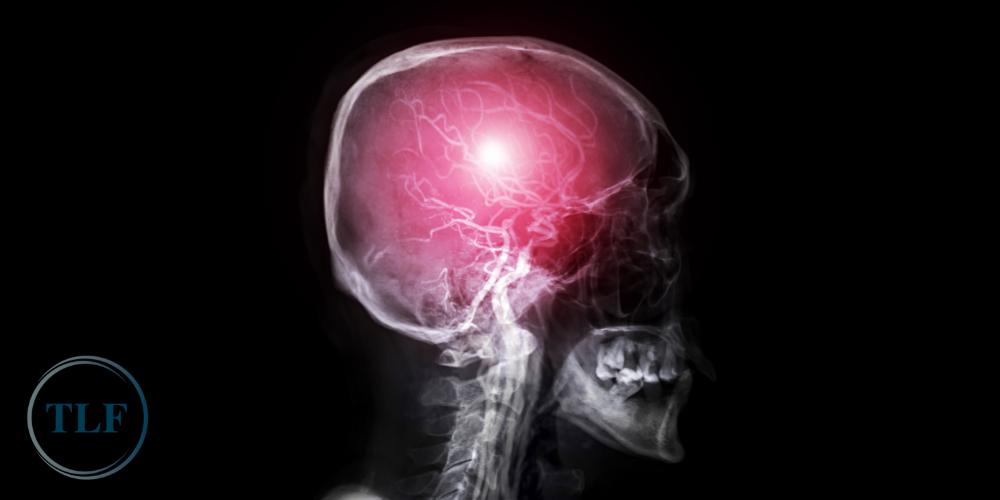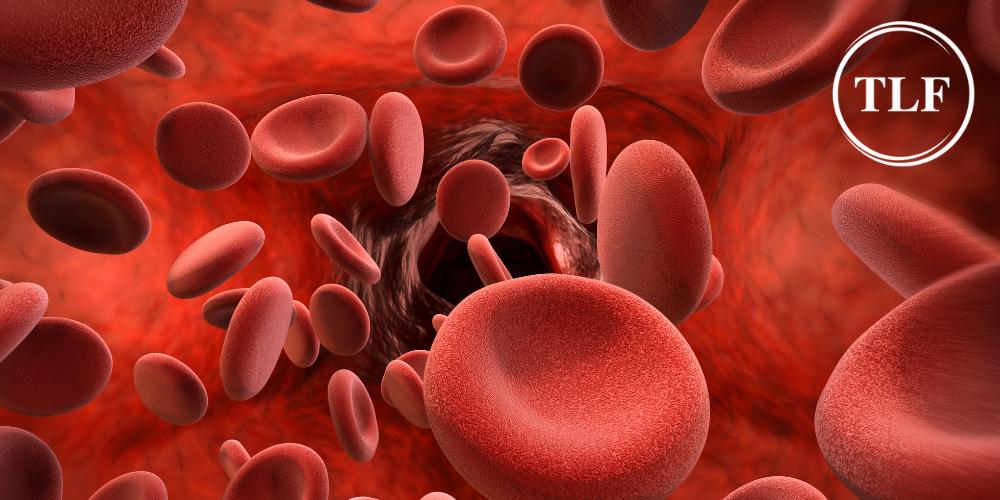Putting Our Knowledge And Experience To Work
Home » Medical Malpractice » Failure To Treat TIA Malpractice Lawyers
Failure To Treat TIA Malpractice Lawyers
Ohio and Northern Kentucky Medical Malpractice Lawyers for Transient Ischemic Attack Negligence
Emergency rooms see a large number of patients every day, many of which are suffering from serious injuries or medical conditions, like strokes. Some people who come to the hospital with stroke symptoms, however, are only suffering from a “mini-stroke,” also known as a transient ischemic attack or TIA.
While TIAs can be minor and temporary, they are often a warning sign for an oncoming stroke. If ignored or misdiagnosed, TIA victims could easily suffer from a serious stroke without any idea that they were at a high risk for stroke. This could cause them to delay seeking treatment or prevent medical professionals from providing them with life-saving care.
It’s extremely crucial that medical staff timely diagnose and treat TIAs. When they don’t, they put their patients’ lives at risk. If you or a loved one has suffered from a misdiagnosed or undiagnosed TIA, the Ohio and Northern Kentucky medical malpractice lawyers at TLF: The Medical Injury Law Firm are here for you.
With over 50 years of experience serving Ohio and Kentucky residents, our team is well-equipped to handle a variety of medical malpractice cases, including TIA and stroke malpractice cases. Call us toll-free at (800) 698-4054 and schedule a free consultation with one of our stroke lawyers to discuss your case.

What is a TIA?
A transient ischemic attack (TIA), sometimes called a “mini-stroke,” occurs when a blood clot temporarily blocks a blood vessel in the brain, preventing it from providing that portion of the brain with blood.
Normally, a TIA will resolve itself, but that doesn’t mean it should be ignored. TIAs are often warning signs of an impending stroke, like an ischemic stroke. Ischemic strokes are also caused by blood clots that prevent blood flow to a portion of the brain, but unlike TIAs, ischemic strokes do not resolve on their own.
Symptoms of TIA
Some of the symptoms of a TIA include:
- Severe headache
- Numbness or weakness on one side of the body
- Slurred speech
- Blindness or blurry vision in one or both eyes
- Vertigo or difficulty balancing
Many TIA symptoms are the same or very similar to stroke symptoms. Because of this, doctors may have a hard time distinguishing between TIAs and ischemic or hemorrhagic strokes. That’s why it’s important that patients undergo the proper imaging and lab tests required to properly diagnose a TIA.
A failure to properly evaluate the symptoms and provide the patient with a correct diagnosis could be considered an act of emergency room negligence. This would make a healthcare professional liable for any damages their mistake caused, including lifelong injuries and death.

How Healthcare Professionals Treat TIAs
In order to restore blood flow to the affected areas of the brain, TIA patients can be treated with medications, catheter-based procedures, or surgery. Patients may be given blood thinners or blood pressure medication to clear blockages in blood vessels and prevent future blood clots.
Catheter-based procedures, or endovascular procedures, involve using a thin, flexible tube to remove clots or open narrowed arteries and veins. When these methods don’t work, surgery like an endarterectomy can help clear a clogged blood vessel and support the flow of blood.
If the patient suffers from a complete stroke, then they will need to undergo further treatment, usually through a clot-busting drug called a tissue plasminogen activator (tPA). While tPA can effectively dissolve blood clots, there are also risks that come with tPA treatment, which is why it is not provided to those with only TIA.
The Importance of Prompt TIA Diagnosis and Treatment
TIAs require proper and timely treatment to prevent serious harm. The brain requires a steady blood supply to function and keep the brain cells alive. When the blood flow to a portion of the brain is interrupted, even for a short period of time, it can begin to cause brain damage.
While TIAs rarely lead to permanent brain damage, ischemic strokes can–and often do–cause irreversible brain damage. It’s difficult to distinguish between a TIA and an ischemic stroke, so seeking immediate treatment can help ensure the patient receives an accurate diagnosis, decreasing the likelihood of long-lasting damage. A failure to diagnose or treat these conditions, however, could be incredibly harmful and even life-threatening.

What Happens If You Don’t Treat a TIA?
Failure to treat a TIA can have devastating consequences. Some TIAs may resolve themselves within minutes or hours of onset of symptoms, but if the patient does not receive immediate treatment, they could suffer from another TIA soon after the first one. They could also suffer from an actual stroke, which can cause more widespread damage to the patient’s brain tissue.
Long-Term Effects of Untreated TIA
Untreated TIAs can lead to a number of different, long-lasting problems, even if the attack does not lead to a stroke. Some of the long-term effects of a TIA include:
- Fatigue;
- Communication problems;
- Cognitive impairment; and
- Mood disorders like depression and anxiety.
If the untreated TIA does lead to an ischemic stroke, victims could suffer from additional long-term effects, such as:
- Paralysis;
- Slurred speech;
- Memory loss;
- Fatigue ;
- Movement disorders;
- Vision problems;
- Difficulty swallowing; and
- Death.
Brain damage as a result of a stroke can lead to permanent disability or death. If you or a loved one has suffered from a brain injury or wrongful death as a result of a failure to diagnose or treat TIA, you may be able to file a medical malpractice claim against the medical professional responsible.

The Most Common Reasons for TIA Misdiagnosis
There are a number of reasons why a physician or other healthcare professional may misdiagnose a TIA. One main reason is that there is little consensus on what should be diagnosed as a TIA and what should not be diagnosed as a TIA. This can be attributed in part to “mimic” conditions.
Like strokes, transient ischemic attacks can be mistaken for other health issues that share the same or similar symptoms. Doctors may misdiagnose a TIA victim, telling them they are suffering from a migraine or syncope, both of which are known to mimic TIA and stroke symptoms.
Without conducting the appropriate tests, doctors may never realize the patient is suffering from a TIA. Younger patients may be at a higher risk of being misdiagnosed with a TIA mimic, since strokes are less likely to occur in younger people.
Additionally, a TIA or stroke patient may receive a misdiagnosis as a result of a lack of information. When doctors fail to obtain a complete or mostly complete medical history on a patient, they can mistakenly diagnose the patient with the wrong condition.
Lastly, a TIA may be misdiagnosed due to an error. This can occur in situations where a medical professional should have been able to provide the patient an accurate TIA or stroke diagnosis, but, for one reason or another, failed to do so.
Regardless of whether or not it was intentional, when a physician or nurse makes a mistake, they can cause serious harm to a patient, especially in cases of emergencies like TIA or strokes. If you are a victim of a TIA or stroke misdiagnosis, contact a medical malpractice attorney regarding your case today.

Can You Sue for Failure to Treat a TIA?
Yes, you can sue for a failure to diagnose or treat a TIA. Doctors and other medical professionals are required to provide their patients with a certain baseline standard of care. If your doctor failed to provide you with even the minimum level of care, you could have grounds for a medical malpractice lawsuit.
Medical malpractice claims can occur as a result of various interrelated acts of medical negligence, like a failure to diagnose, a failure to treat, or a misdiagnosis. If you have suffered from any of these actions or omissions in relation to a TIA, you should contact a skilled attorney at TLF regarding your potential medical malpractice case.
Compensation for TIA Treatment Negligence
After suffering from a missed, delayed, or incorrect diagnosis, malpractice victims can recover compensation for their injuries through a medical malpractice claim. In a TIA or stroke misdiagnosis claim, victims can recover compensation for losses such as:
- Medical bills;
- Lost wages;
- Loss of earning potential;
- Physical pain and suffering;
- Funeral and burial costs, in cases involving wrongful death.
How TLF Helps Ohio and Kentucky Residents With Medical Malpractice Claims
Medical negligence can be difficult to prove, given the fact that the victim (or their legal team) must prove that the medical professional in the case failed to provide the minimum amount of care for their patient. This means that if a healthcare professional deviates from what a normal healthcare professional would do in a given situation, that can be considered a breach of duty.
At TLF: The Medical Injury Law Firm, our misdiagnosis lawyers have plenty of experience handling stroke malpractice cases and know exactly how to prove liability in court. Our law firm will contact medical experts in the same field as the negligent healthcare professional responsible for your injuries. These expert witnesses can help establish a baseline standard of care and prove that the standard was not met.
If it can be proven that the negligent healthcare provider should have been able to diagnose stroke or TIA, given the information available to them and their experience, but they didn’t, they breached their duty of care to their patient. Proving this in court can be difficult, but our medical malpractice experts at TLF are prepared to do what it takes to get our clients the compensation they deserve.

Contact the TIA Malpractice Attorneys at TLF: The Medical Injury Law Firm Today for a Free Consultation
Every licensed medical professional has a responsibility to treat their patients to the best of their ability, which includes providing them with an accurate and timely diagnosis. When doctors, nurses, and other medical professionals fail to do so, they could cause serious injuries and even death as a result of their negligence.
If you are a victim of stroke malpractice, contact the Northern Kentucky and Ohio stroke misdiagnosis attorneys at TLF: The Medical Injury Law Firm as soon as possible. We can take legal action against the primary care physician, emergency room physician, or other healthcare professional who provided you with an incorrect or late diagnosis and help you recover compensation for your losses.
We have offices in both Northern Kentucky and Ohio, so contact our office closest to you and schedule a free consultation with one of our experienced medical malpractice attorneys today. You can reach us at our Covington, Kentucky office by calling (859) 898-2472, or you can reach our Cincinnati, Ohio office by calling 513-643-1689. You can also call our toll-free number at (800) 698-4054 or contact us via our website to get in touch.
Practice Areas
You Pay No Fees Unless We Win!
We are happy to offer a free consultation to evaluate your case. If you hire us as your legal counsel, we will represent you on a contingency-fee basis. You will pay no attorneys’ fees unless we recover financial damages.
